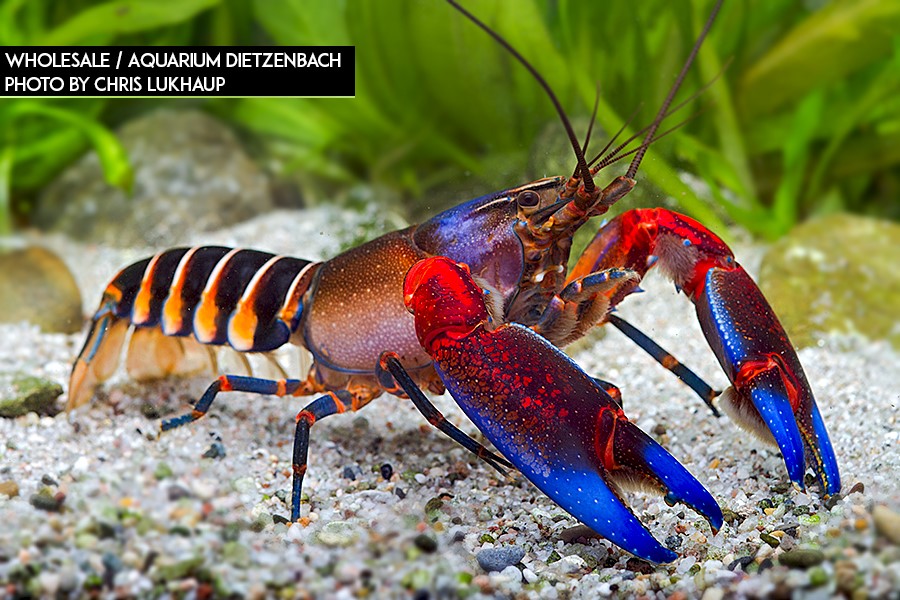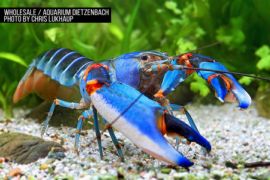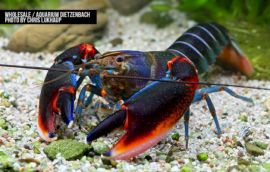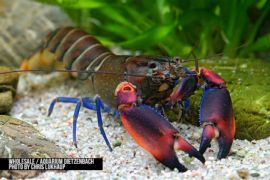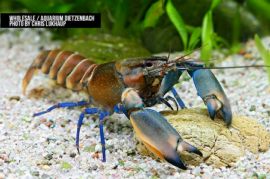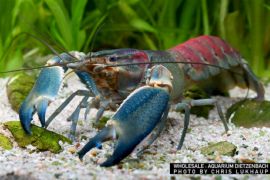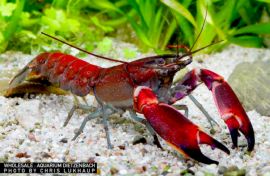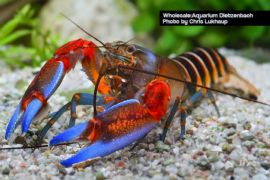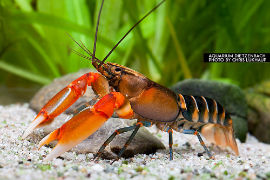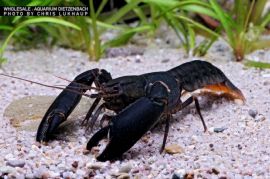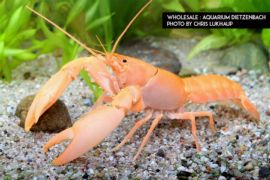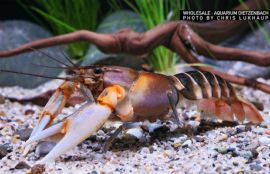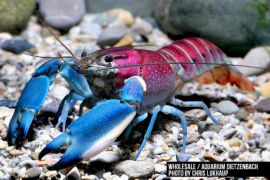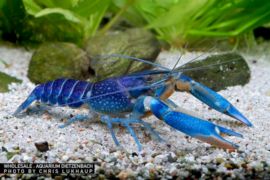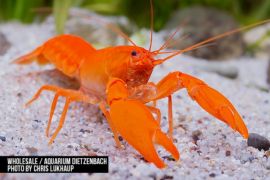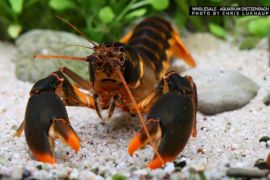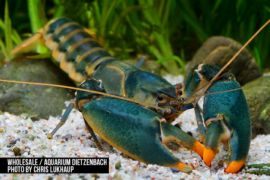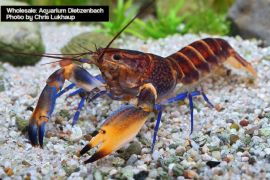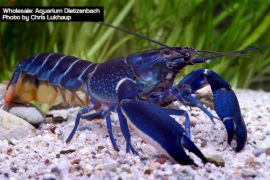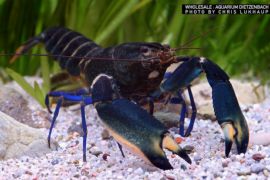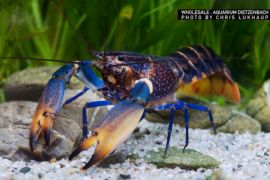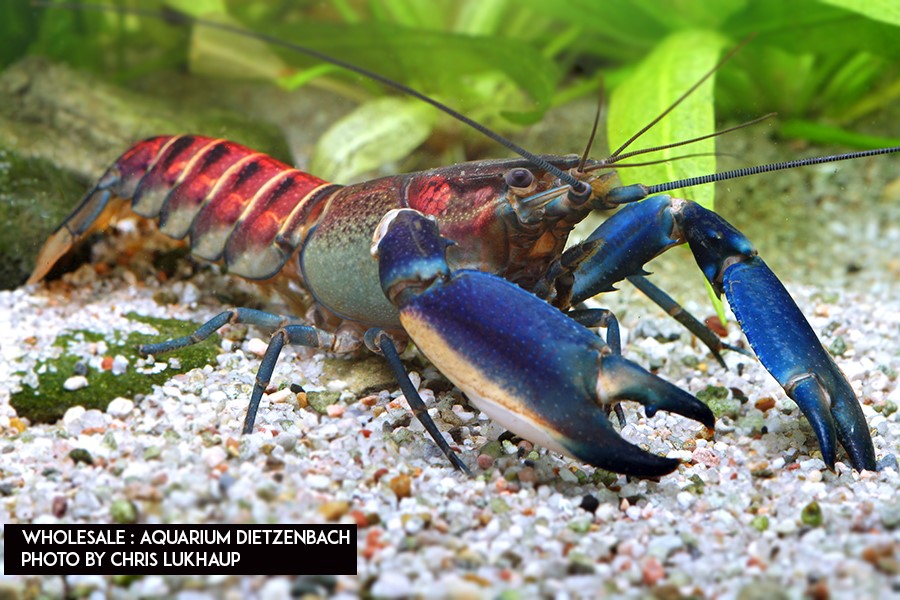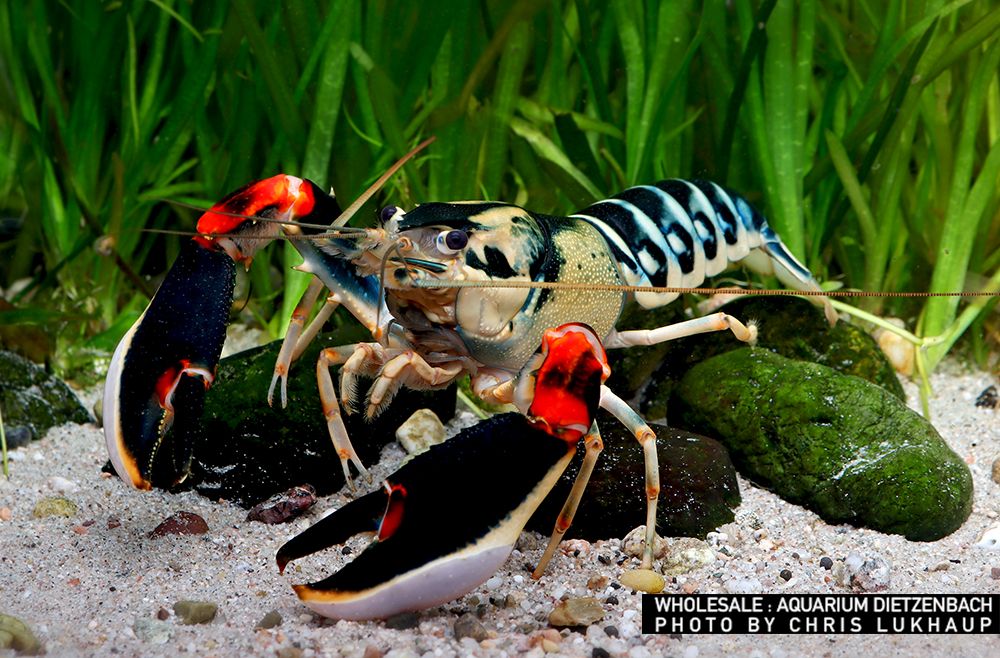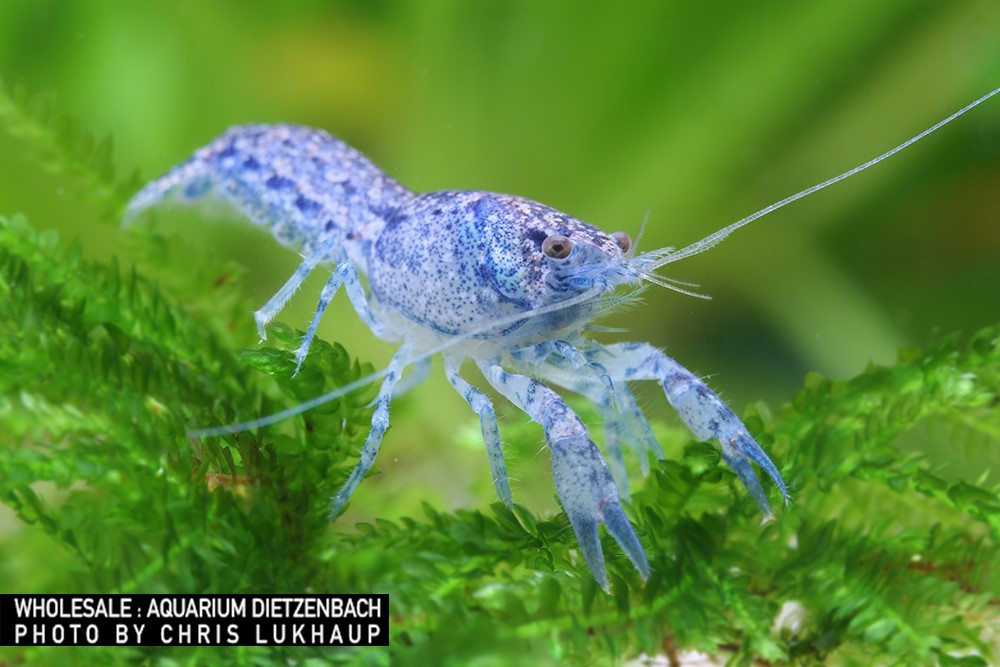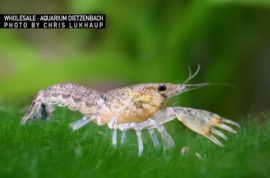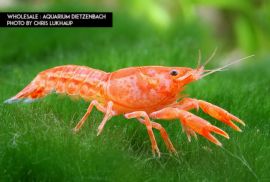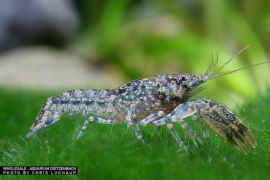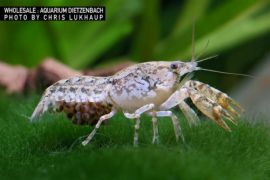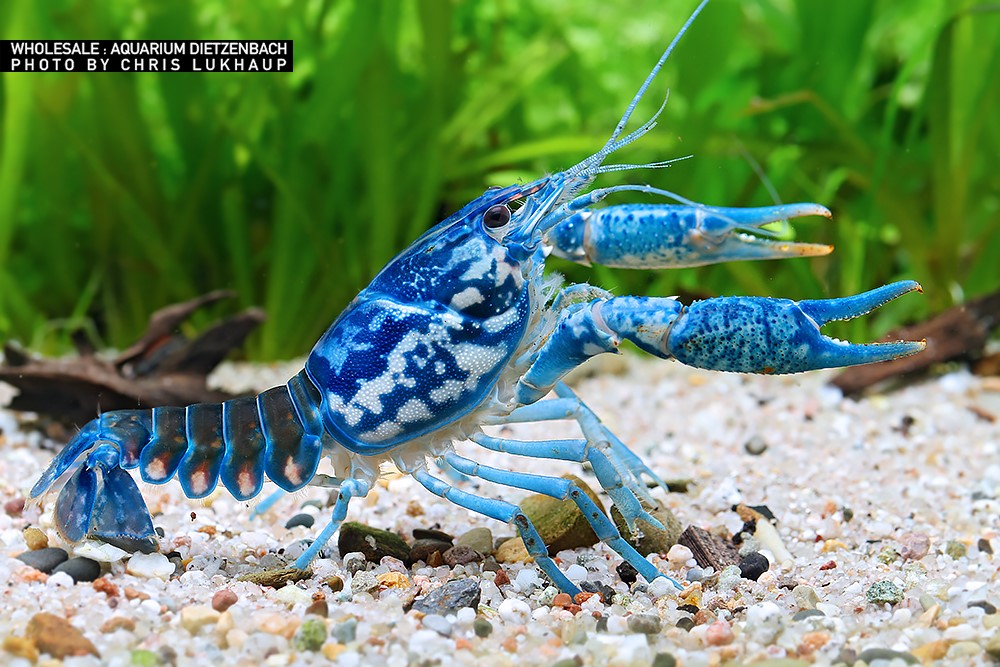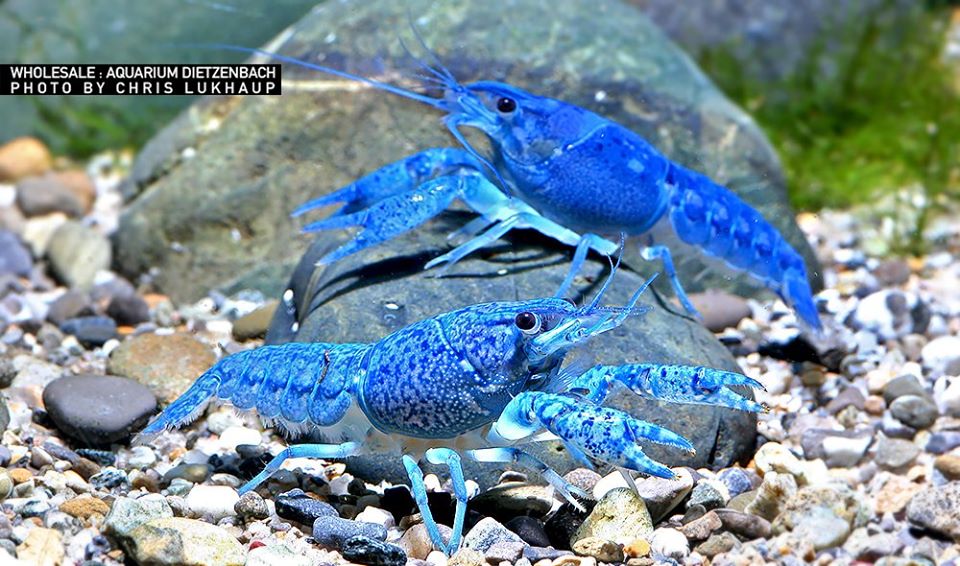Krebse
Aufgrund der Tatsache, dass die Cambarellus und Procambarus Arten sehr gut mit der Krebspest,
Aphanomyces astaci leben können, Cherax allerdings nicht, fällt eine
Vergesellschaftung unter den Gattungen im selben Aquarium oder
Wasserkreislauf aus.
Die
meiste Bewegung gibt es zur Zeit bei den Cherax. Das größte
Verbreitungsgebiet liegt in Neuguinea und den umliegenden Inseln.
Derzeit werden dort jede Menge neue Gebiete zugänglich, an welchen noch
niemals zuvor ein Mensch unterwegs war. Ähnlich wie bei den
Regenbogenfischen, ist hier eine große Verbreitung einzelner Arten durch
die natürlichen Grenzen nicht so einfach und deshalb gibt es, mal
übertrieben gesagt, in fast jedem Bach eine neue Art zu entdecken.
Wir
bekommen alle 4 Wochen von dort Tiere und oft erhalten wir dabei auch
außergewöhnliche Arten, die nicht so gängig sind. Ein regelmäßiger Blick
in unsere Bestandsliste lohnt sich!
Crayfish
Due to the fact that the Cambarellus and Procambarus species can live very well with the crayfish plague, Aphanomyces astaci, but Cherax cannot, there is no association among the genera in the same aquarium or water cycle.
Most
of the movement right now is with the Cherax. The largest distribution
area is in New Guinea and the surrounding islands. At the moment, a lot
of new areas are becoming accessible there, in which a person has never
been before. Similar to the rainbow fish, a large distribution of
individual species through the natural limits is not so easy and
therefore there is, to put it exaggerated, a new species to be
discovered in almost every stream.
We
get animals from there every 4 weeks and we often get unusual species
that are not so common. It is worth taking a regular look at our inventory list!
Cherax sp.
